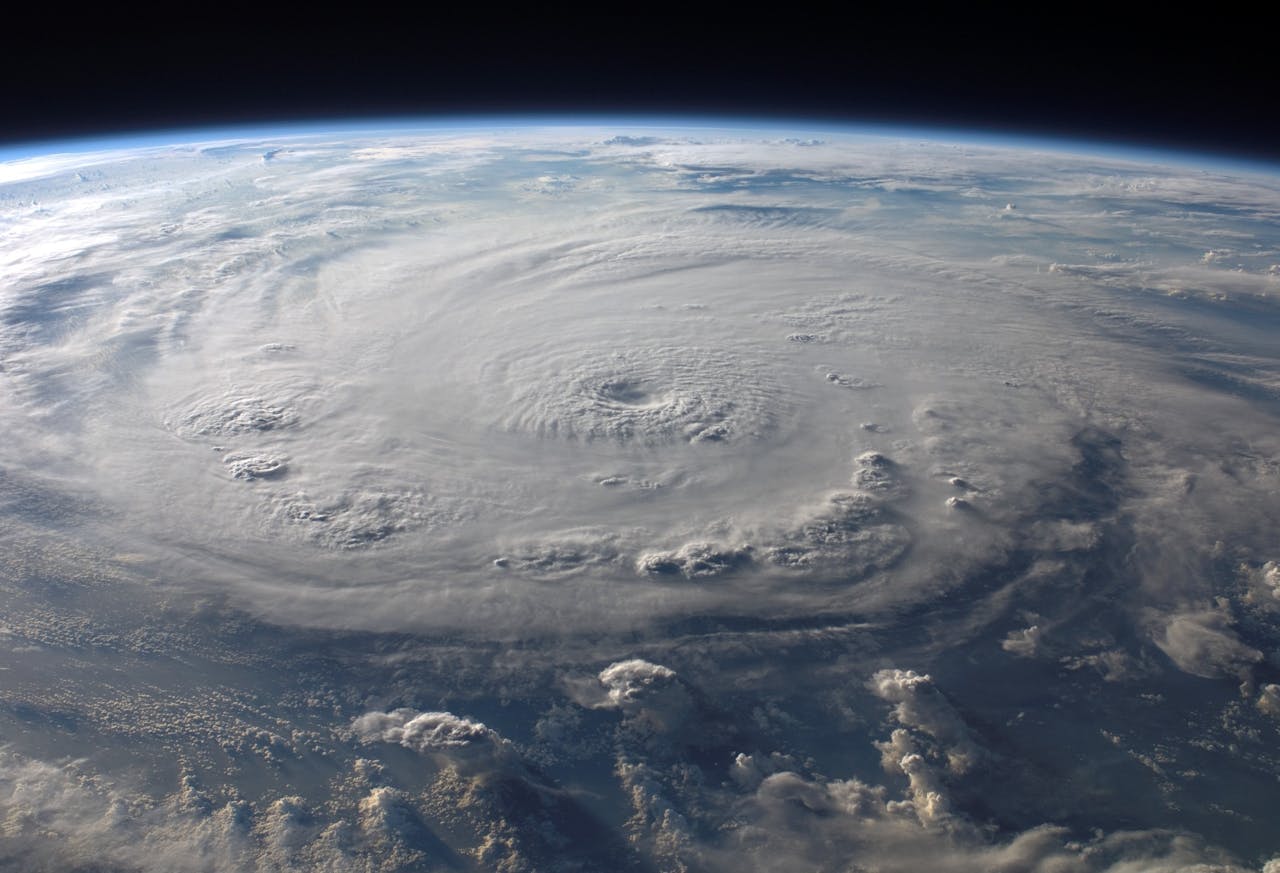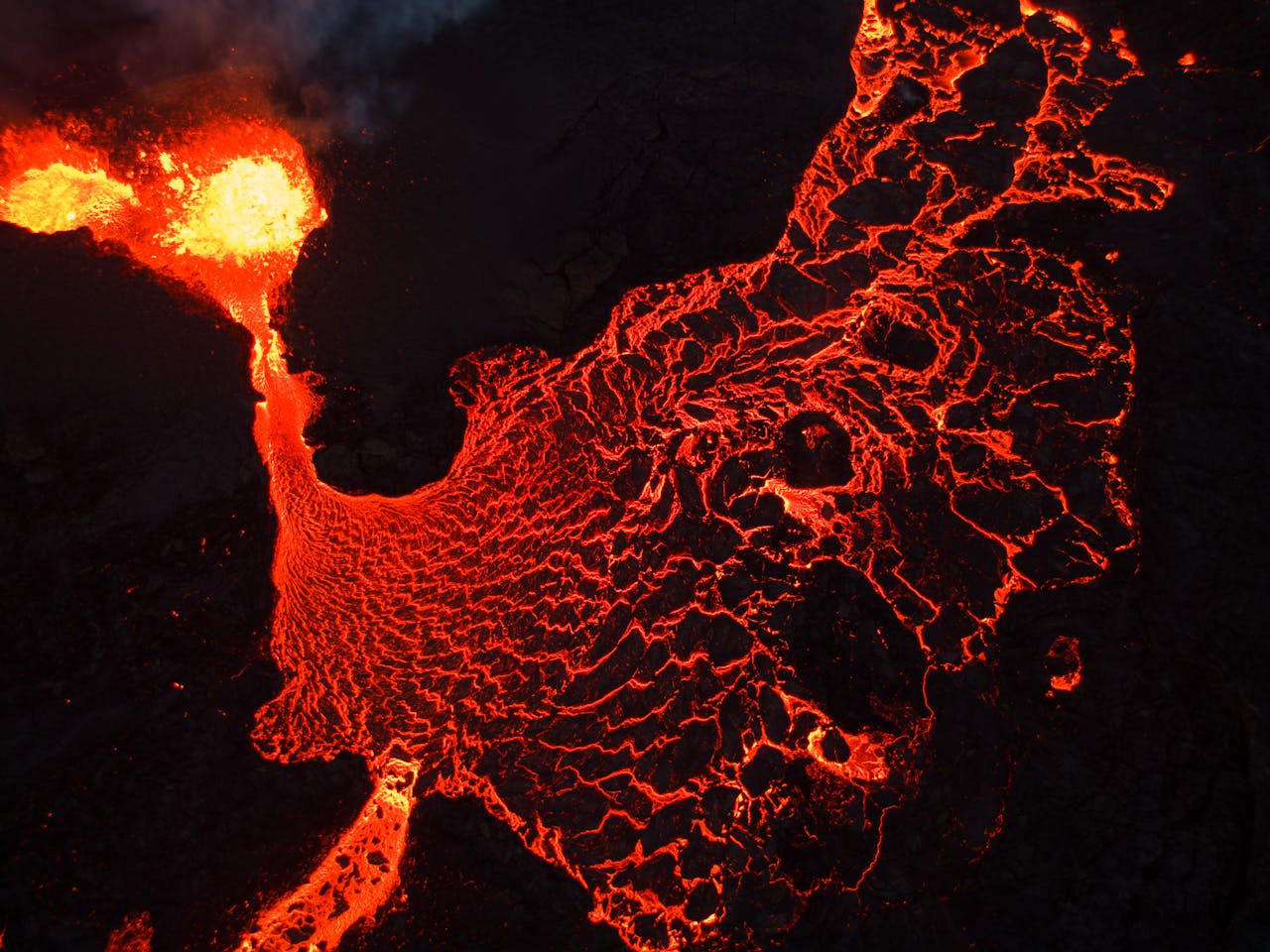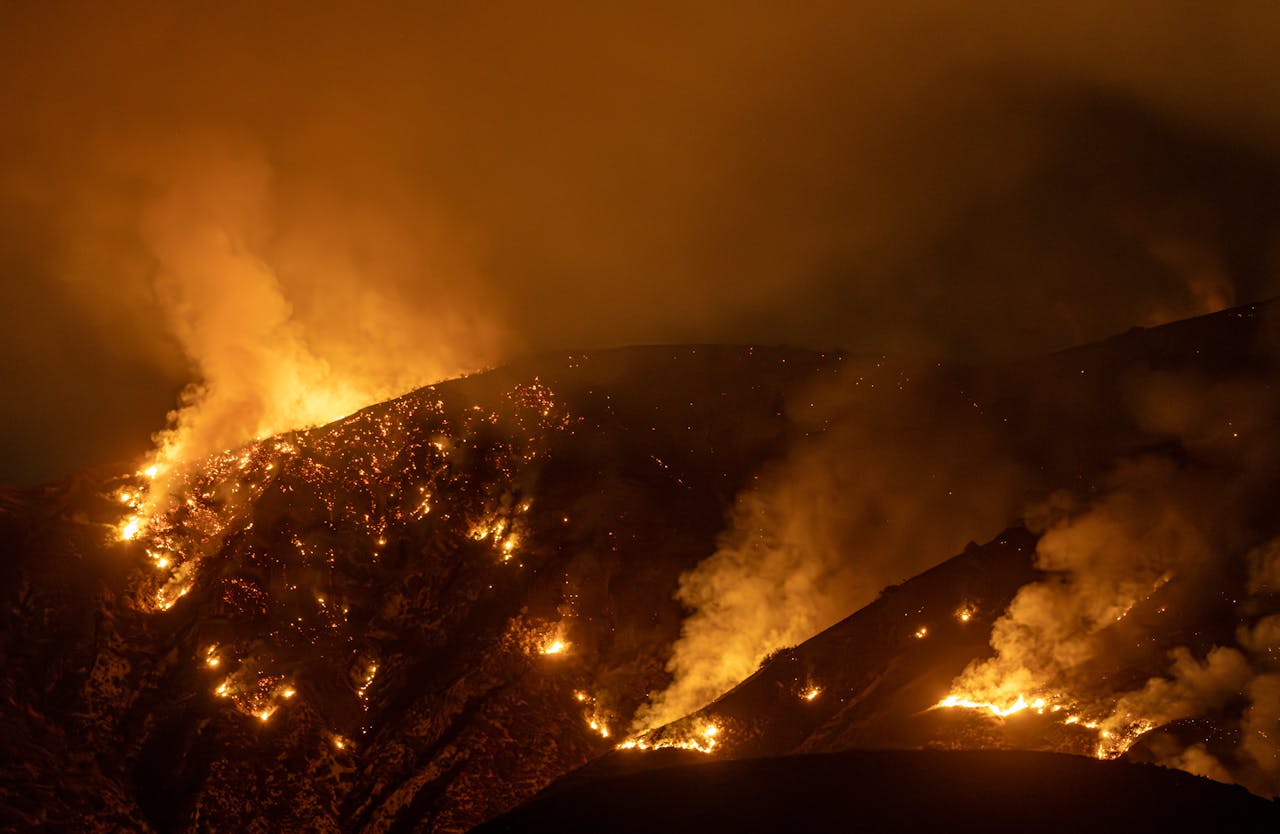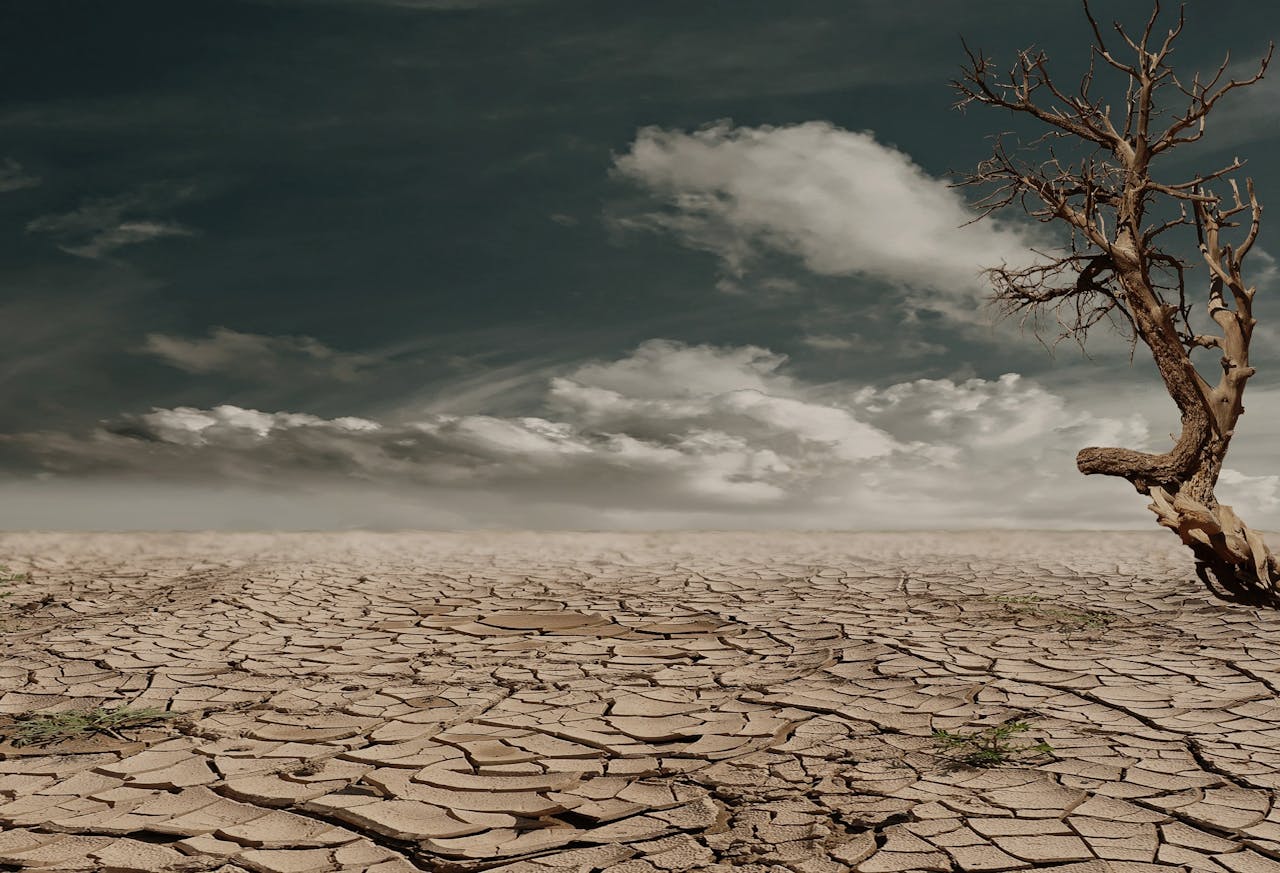
The Meaning of the Apocalypse Dream According to Javanese Primbon: Interpretation and Deep Meaning
Dreams about the apocalypse often evoke anxiety and fear for those who experience them. However, did you know that apocalypse dreams have a much deeper meaning than just the fear of the end of the world? Let us explore together the meaning, interpretation, and hidden messages behind apocalypse dreams in this comprehensive article, particularly from the perspective of Javanese primbon.
1. Definition of Apocalypse Dream

Natural disasters (credit: pexels.com)
An apocalypse dream is a sleep experience in which someone feels they are witnessing or experiencing events that depict the end of the world or massive destruction. This phenomenon often involves intense visual imagery and strong emotions, such as fear, anxiety, or even a strange sense of peace.
In the context of Javanese primbon, apocalypse dreams are viewed as symbolic messages that carry deep meanings related to the dreamer's life. Javanese primbon, as a collection of traditional knowledge, interprets apocalypse dreams not always as bad omens but rather as symbols of significant change or transformation in a person's life.
2. Interpretation of Apocalypse Dreams According to Javanese Primbon
Javanese primbon has several interesting interpretations related to apocalypse dreams:
- Sign of Good Fortune: Contrary to what one might imagine, apocalypse dreams in Javanese primbon are often considered a good sign. Dreaming of a great apocalypse (kiamat kubra) is believed to signify the arrival of success and happiness in the dreamer's life.
- Symbol of Major Change: Dreaming of a minor apocalypse (kiamat sugro) is interpreted as a sign of significant changes to come in life. This could involve important events such as marriage, the birth of a child, getting a new job, or moving houses.
- Sign of Peace: If in the apocalypse dream the dreamer feels calm or at peace, this is considered a sign of the arrival of tranquil and harmonious times in life.
- Warning for Introspection: Although often interpreted positively, apocalypse dreams can also be seen as a warning to engage in self-introspection. This may indicate the need to improve certain attitudes or behaviors.
- Sign of Safety: If in the apocalypse dream the dreamer feels safe or protected, this is regarded as a sign of good fortune and protection from future dangers.
3. Causes of Apocalypse Dreams
Apocalyptic dreams can be caused by various factors, both internal and external. Understanding these causes can help us better comprehend the meaning behind the dream. Here are some common causes of apocalyptic dreams:
- Stress and Anxiety: One of the most common causes of apocalyptic dreams is high levels of stress and anxiety. When someone is facing heavy pressure in daily life, the subconscious mind may process this tension in the form of apocalyptic dreams.
- Media Exposure: Watching movies, TV shows, or reading books about the apocalypse or major disasters can influence the subconscious and trigger similar dreams. This is especially likely to occur if such content is consumed close to bedtime.
- Major Life Changes: Facing or anticipating significant changes in life - such as marriage, the birth of a child, or career changes - can trigger dreams about the "end of the world" as a metaphor for the end of a certain phase of life.
- Fear of the Future: Worries about the future, both personally and globally (e.g., about climate change or political situations), can manifest in apocalyptic dreams.
- Feelings of Helplessness: Feeling powerless or overwhelmed by life's challenges can lead to dreams where the world ends - a symbolic representation of the feeling that everything is out of control.
4. How to Respond to Apocalypse Dreams

Natural disaster (credit: pexels.com)
Experiencing an apocalypse dream can be a shocking and confusing experience. However, there are several positive ways to respond to this dream that can help you gain insights and even use it for personal growth. Here are some suggestions for responding to apocalypse dreams:
- Don't Panic: Remember that dreams, no matter how intense, are merely products of your subconscious mind. An apocalypse dream does not mean the apocalypse will actually happen. Try to remain calm and rational.
- Self-Reflection: Use this dream as an opportunity for introspection. Ask yourself: Are there aspects of your life that need to be "ended" or changed? Are there fears or anxieties that you need to confront?
- Record Dream Details: As soon as you wake up, write down the details of your dream. This can help you remember and analyze the dream better. Pay attention to the feelings, symbols, and specific elements that appeared in the dream.
- Seek Personal Meaning: Try to interpret the dream in the context of your current life. Are there situations or relationships that are undergoing significant changes? The apocalypse dream may be a symbolic representation of this transition.
- Talk to a Trusted Person: Sharing your dream experience with friends, family, or a counselor can help you gain new perspectives and emotional support.
5. Benefits of Understanding the Meaning of Apocalypse Dreams
Although apocalyptic dreams are often considered frightening or confusing, understanding their meaning can provide various benefits for mental health and personal development. Here are some key benefits of understanding the meaning of apocalyptic dreams:
- Deeper Psychological Insights: Understanding the meaning of apocalyptic dreams can provide valuable insights into your current psychological state. These dreams often reflect fears, anxieties, or internal conflicts that you may not be fully aware of in your waking life.
- Increased Self-Awareness: The process of understanding apocalyptic dreams can enhance your self-awareness. It helps you recognize thought patterns, feelings, and behaviors that may contribute to the dream.
- Tool for Coping with Stress: Understanding that apocalyptic dreams are often manifestations of stress or anxiety can help you identify sources of stress in your life. With this knowledge, you can develop more effective strategies for managing stress and anxiety.
- Inspiration for Positive Change: Apocalyptic dreams are often interpreted as symbols of the end of one phase of life and the beginning of another. Understanding this can encourage you to make positive changes in your life, such as ending unhealthy relationships, changing careers, or pursuing new goals.
- Enhanced Creativity: Apocalyptic dreams are often filled with symbolism and powerful imagery. Understanding and exploring the meanings behind these symbols can stimulate your creativity, providing inspiration for art, writing, or other creative projects.
6. Traditions and Beliefs Related to Apocalypse Dreams
Dreams about the apocalypse have been part of the traditions and beliefs of various cultures around the world since ancient times. Here are some traditions and beliefs related to apocalypse dreams from different cultures:
- Javanese Tradition: In Javanese culture, apocalypse dreams are often associated with the concept of "ruwatan" or spiritual cleansing. These dreams may be seen as a sign of the need to perform rituals for personal or environmental purification.
- Hindu Belief: In Hindu tradition, the concept of pralaya or destruction and the rebirth of the universe is part of the cosmic cycle. Dreams about the apocalypse may be viewed as a reflection of this cycle or as a reminder of the transient nature of worldly existence.
- Islamic Tradition: In Islam, dreams are considered one of the ways Allah communicates with humans. Dreams about the apocalypse may be seen as a reminder of the Day of Judgment and a call to enhance piety.
- Buddhist Belief: In Buddhism, the concept of impermanence is a core teaching. Dreams about the apocalypse may be seen as a reflection of the impermanent nature of all phenomena and a motivation to achieve enlightenment.
- Native American Tradition: Many Native American tribes have a strong tradition of dreaming. Dreams about the destruction of the world may be viewed as spiritual visions that require interpretation from tribal elders or shamans.
7. 5W1H Apocalypse Dream

Natural disaster (credit: pexels.com)
To understand the apocalypse dream more comprehensively, let's review it using the 5W1H approach (What, Who, When, Where, Why, How):
- What (What): The apocalypse dream is a sleep experience in which someone witnesses or experiences events that depict the end of the world or massive destruction. This can involve various scenarios such as devastating natural disasters, alien invasions, nuclear wars, or supernatural phenomena.
- Who (Who): Apocalypse dreams can be experienced by anyone, regardless of age, gender, or cultural background. However, some groups may be more prone to experiencing these dreams, such as individuals who are undergoing high stress or anxiety.
- When (When): Apocalypse dreams can occur at any time during the sleep cycle, but they are more often experienced during the REM (Rapid Eye Movement) phase of sleep, which typically occurs several times throughout the night.
- Where (Where): Physically, dreams occur in the brain during sleep. However, in the context of the dream itself, the location of the "apocalypse" can vary, ranging from familiar environments for the dreamer to unknown or fantastical locations.
- Why (Why): There are several theories about why people experience apocalypse dreams, including as a way for the brain to process and cope with fears or anxieties, a reflection of concerns about significant life changes, or a manifestation of feelings of helplessness.
- How (How): The process of having an apocalypse dream involves brain activity during sleep, particularly during the REM phase, which generates images and narratives of dreams. Experiences, thoughts, and emotions from daily life are processed and integrated into the content of the dream.
8. Comparison of Apocalypse Dream Interpretations from Various Perspectives
The apocalypse dream has been interpreted from various perspectives, each offering a unique outlook on its meaning and significance. Let’s compare some of the main approaches to interpreting the apocalypse dream:
- Psychological Perspective: In psychology, especially within the psychoanalytic tradition, apocalypse dreams are often seen as symbolic representations of internal conflict or significant psychological change. Sigmund Freud might interpret it as a manifestation of repressed anxiety, while Carl Jung might view it as an expression of the collective archetype.
- Spiritual/Religious Perspective: In a spiritual or religious context, apocalypse dreams are often seen as messages or experiences that hold spiritual significance. In Abrahamic traditions (Judaism, Christianity, Islam), these dreams may be regarded as divine warnings or calls to repentance.
- Cultural Perspective: The interpretation of apocalypse dreams can vary greatly across cultures. Some traditional cultures might see it as a message from ancestors or spirits, while in more secular modern cultures, it may be interpreted in the context of social or environmental concerns.
- Neurobiological Perspective: From a neuroscience standpoint, apocalypse dreams are viewed as the result of certain brain processes, possibly related to increased amygdala activity or fluctuations in specific neurotransmitters during sleep.
- Evolutionary Perspective: Evolutionary theory might interpret apocalypse dreams as beneficial adaptations, possibly serving to prepare individuals for potential threats or to enhance awareness of environmental dangers.
9. Differences Between Apocalypse Dreams and Natural Disaster Dreams
Although apocalypse dreams and natural disaster dreams may initially seem similar, they have several important differences in terms of content, scale, and interpretation. Here are some key differences between these two types of dreams:
- Scale and Scope: Apocalypse dreams usually involve total destruction or the end of the world, often encompassing a global or even cosmic scale. Meanwhile, natural disaster dreams are generally limited to specific disasters such as earthquakes or tsunamis, usually at a local or regional scale.
- Symbolic Elements: Apocalypse dreams are often rich in religious or mythological symbolism, possibly involving abstract concepts like judgment or spiritual renewal. Natural disaster dreams tend to be more literal and based on experiences or knowledge of real disasters.
- Emotions Involved: Apocalypse dreams often involve deep existential feelings such as total helplessness or acceptance. Natural disaster dreams tend to trigger more specific emotional responses, such as fear of physical danger.
- Psychological Interpretation: Apocalypse dreams are often interpreted as representations of significant life changes or personal transformation. Natural disaster dreams are more frequently interpreted as manifestations of specific fears or anxieties in daily life.
- Cultural and Religious Context: Apocalypse dreams often hold strong religious or spiritual significance in many traditions. Natural disaster dreams are more universal and less tied to specific religious contexts.
10. FAQ About Apocalypse Dreams

Natural disaster (credit: pexels.com)
Here are some frequently asked questions about apocalypse dreams, along with their answers:
- Do apocalypse dreams indicate that the apocalypse will really happen?
No, apocalypse dreams are not predictions or signs that the apocalypse will actually occur. Dreams are products of our subconscious mind and often reflect our worries, experiences, or thoughts, rather than actual future events.
- Why do I often dream about the apocalypse?
Recurring apocalypse dreams may reflect ongoing anxiety, high stress, or feelings of helplessness in certain aspects of your life. They may also indicate a need for significant change or transformation in your life.
- Is there a way to stop apocalypse dreams?
While there is no guaranteed way to stop specific dreams, you can try several things like reducing stress, practicing relaxation techniques before sleep, and avoiding media related to the apocalypse or disasters before bedtime.
- Do apocalypse dreams always mean something negative?
Not necessarily. While apocalypse dreams can be frightening, in some interpretations, they can be seen as symbols for positive change, personal transformation, or an opportunity for a fresh start.
- What is the best way to interpret my apocalypse dream?
The best way to interpret your apocalypse dream is to consider your personal context. Reflect on the feelings and emotions you experienced in the dream, consider your current life situation, and note specific details from the dream.
11. Conclusion
Apocalypse dreams, although often frightening or confusing, are complex phenomena that can provide valuable insights into our psychological and emotional states. From the various perspectives we have explored - psychological, spiritual, cultural, and scientific - we can see that these dreams have many layers of meaning and interpretation.
In the context of Javanese primbon, apocalypse dreams are often interpreted as signs of significant change or transformation in life. It is not just about destruction, but also about renewal and the opportunity to start anew. It is important to approach apocalypse dreams with an open and reflective mind, using them as tools for self-introspection and personal growth.
Remember that dream interpretation is very personal and can vary depending on life experiences, cultural background, and individual emotional states. If apocalypse dreams become a significant source of anxiety or disrupt your quality of life, do not hesitate to seek professional help.
Ultimately, understanding the meaning of apocalypse dreams according to Javanese primbon and other perspectives can help us live more wisely, appreciate every moment, and be ready to face changes with openness and courage. Apocalypse dreams, rather than being a source of fear, can be a catalyst for positive transformation in our lives.
(kpl/dhm)
Disclaimer: This translation from Bahasa Indonesia to English has been generated by Artificial Intelligence.





